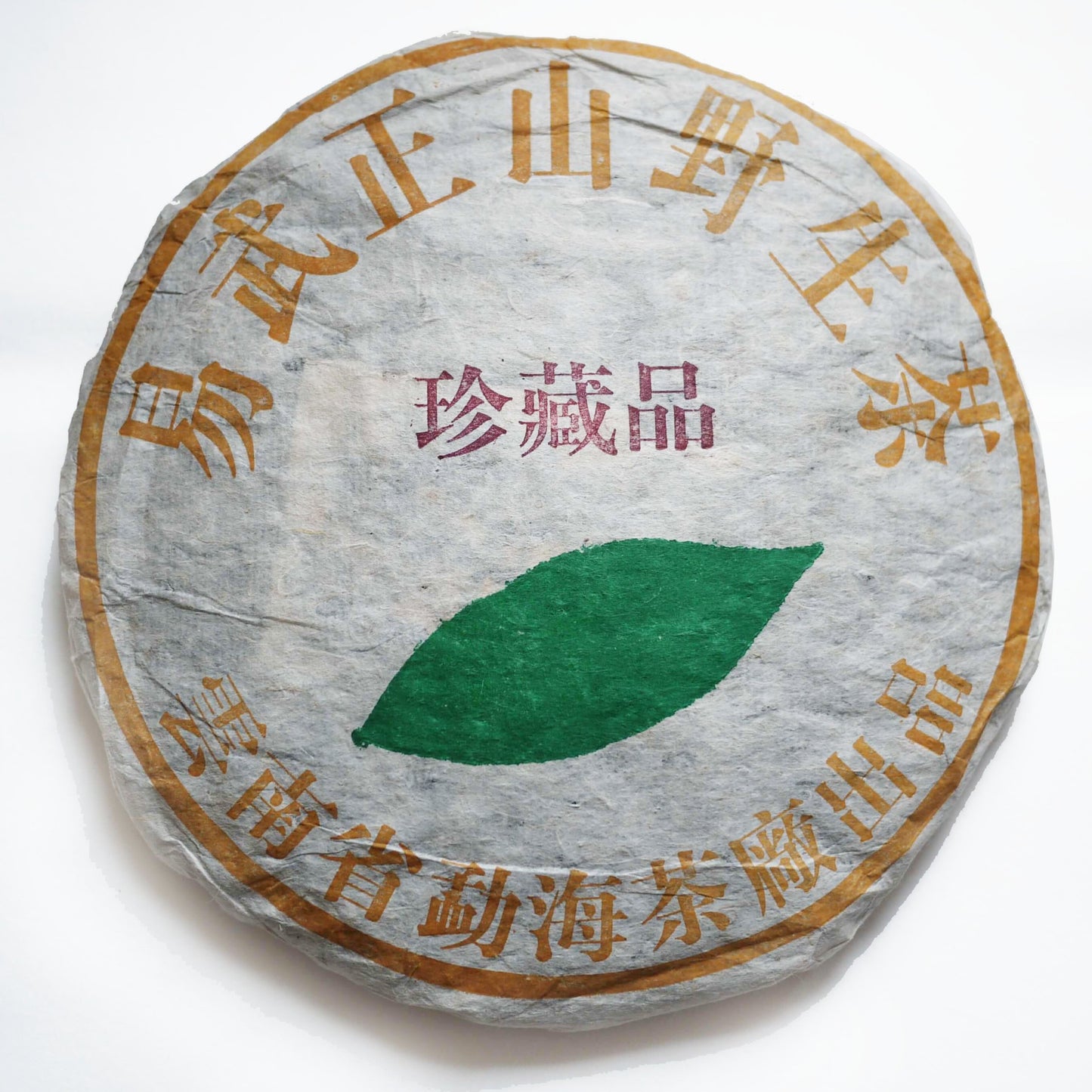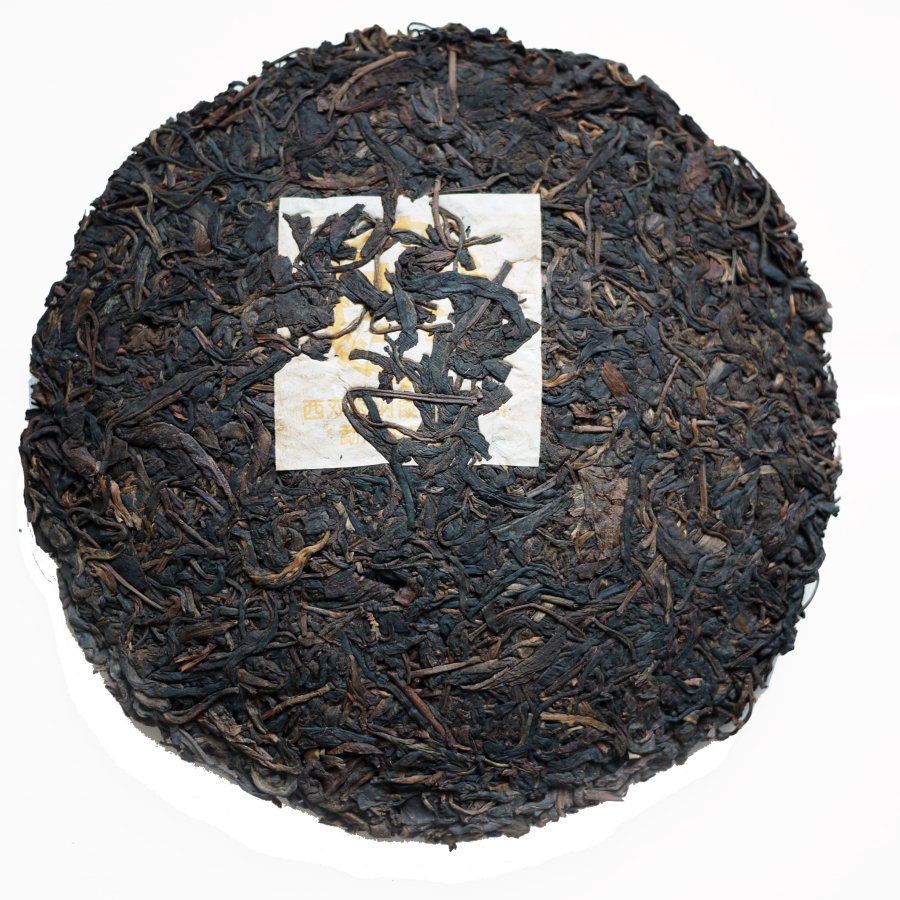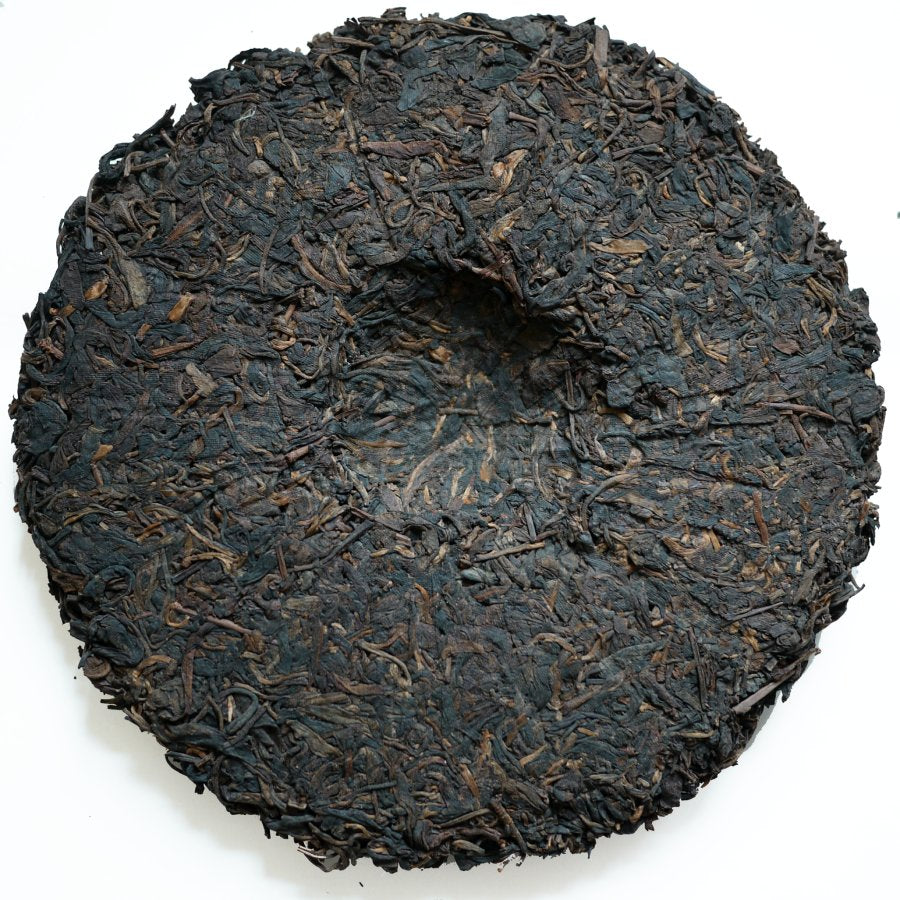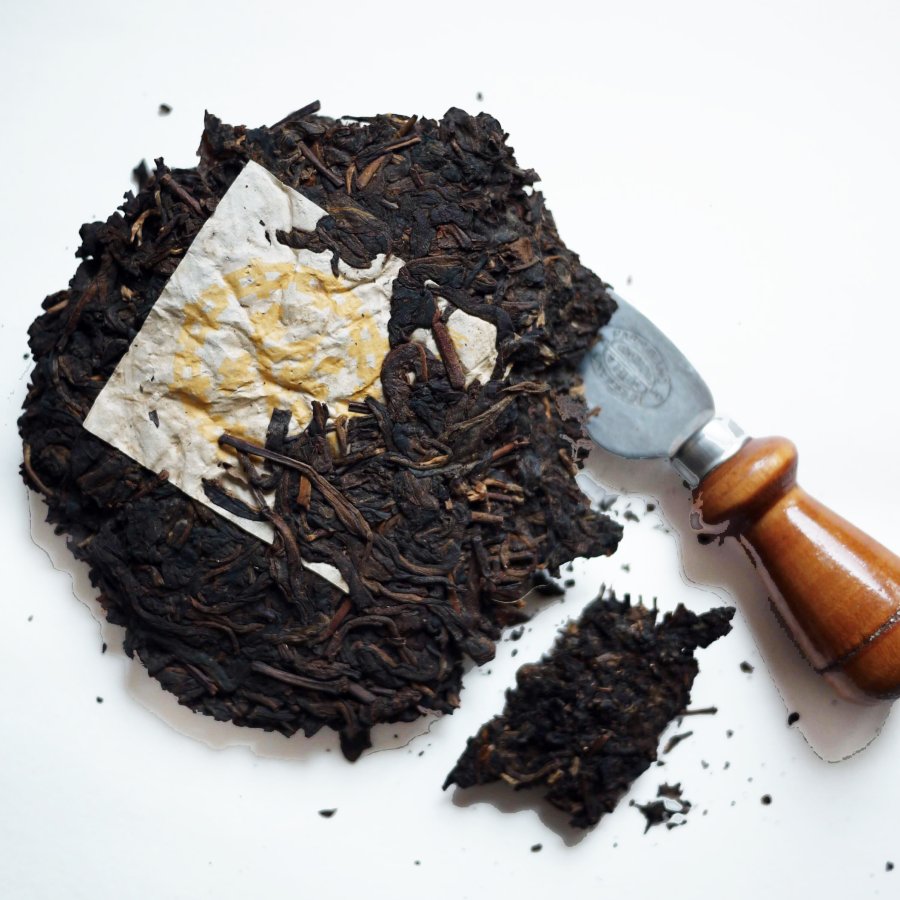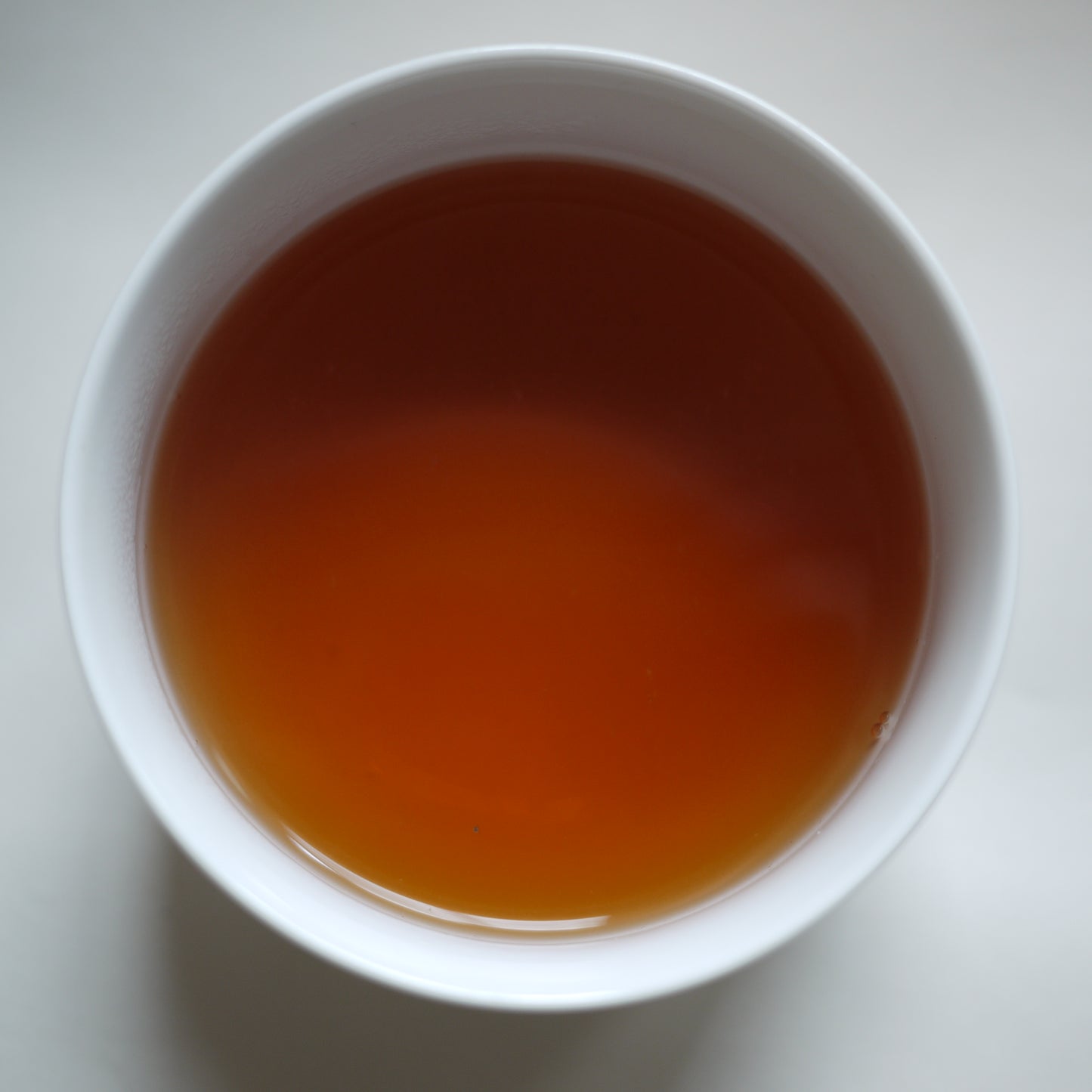Jing Tea Shop
2001 Meng Hai Tea Factory Yiwu Big Leaf
2001 Meng Hai Tea Factory Yiwu Big Leaf
Impossible de charger la disponibilité du service de retrait
This item is shipped separately
Tea Name:Yi Wu Zheng Shan Ye Sheng Cha
Tea Type: Raw Tea (Sheng Cha)
Tea Factory: Meng Hai Tea Factory
Production Date: 2001
Specification: 350g
Shape: Cake, disc, beeng
A beautiful 2001 raw Meng Hai Tea Factory Yiwu mountain beeng from our personal collection. We acquired this tea in 2004 and have patiently awaited its enjoyment. After 20 years, we believe it is the perfect time to share this exquisite puerh with tea lovers. We are releasing two "beeng cha" one as a full piece and another in 50g sampler pouch.
This soon to be iconic puerh tea was specially produced for Mr. Ye of the Guang Zhou Xin Ye Tea Company in 2001 by the famous Meng Hai Tea Factory. Known as the “Yi Wu Yi Pian Ye”, the tea leaves were harvested on the Yi Wu Zheng Shan (Yi Wu mountain) which terroir is considered as one of the most famous. The beeng cha has a nice compression level and we can appreciate the uniform mix of large leaves and plumpy tea buds.
Upon initial inspection, the tea exhibits remarkable storage conditions. The leaves display an even color and emit no unusual fragrance. The compression level remains tight, indicating its intention for a medium to long aging period.
While the dry leaves release minimal aroma, the wet ones offer a different perspective with fragrances evolving around a woody axe and notable depth. In the mouth, it is mellow, rounded, and highly indulgent. We can feel that the power of Yiwu leaves is just starting to emerge. That is one typicity we like about Yiwu puerh tea. They are very mellow and almost subtle in their young years but can be a real powerhouse past 30 years old.
Far away from any form of marketing gimmicks with silly stories, we have here a good old raw puerh tea from what was the most reputed raw beeng cha factory. And as I feel grateful to have more of these for later years, I am looking forward to drinking that tea again. Maybe in a year or two.
After multiple encounters with raw Yi Wu puerh tea, from aged teas to brand new mao cha, One of the characteristics of Yi Wu tea that I find surprising is how the tea is very mellow and calm in its youth. It is past the 15 or 20 years mark that the tea start to show it true nature. The aromas evolve from the typical Chinese olive flavors to a more woody profile but it is the strengh of the tea that is the most astounding with an incredible sensation of power or Qi that increases with age.
Yi Wu, a distinctive terroir and a long history
In the heart of Mengla County, Xishuangbanna, lies the illustrious Yi Wu Mountain, now recognized as Yi Wu Township. During the Qing Dynasty, Yi Wu thrived as the focal point for tea leaf cultivation among the esteemed six major tea mountains and marked the inception of the ancient tea-horse road. According to historical accounts in "Dian Hai Yu Heng Zhi," it is documented, "The six major tea mountains of Pu'er, nestled closely, designate Yi Wu as the central nexus." As the Guangxu period of the Qing Dynasty unfolded, Yi Wu ascended to prominence, assuming the pivotal roles of political, economic, cultural, and transportation hub among the six venerable tea mountains. It functioned as a vital center for the production and distribution of tea leaves, weaving the tapestry of history with its tea-rich legacy.
In the magical domain of Yi Wu, the symphony of its ecosystem is meticulously preserved. The tea area is graced by towering guardians such as camphor and banyan trees, creating a sanctuary that fosters an environmentally favorable setting for tea tree.
Here, the soil undergoes a transformative process shaped by the intricate developments occuring within tropical and subtropical rainforests. A rich tapestry of brick-red, red, yellow, and purple soils unfolds, each contributing to the distinctive canvas of this fertile landscape. With nutrients accumulating swiftly, the soil facilitates the rapid decomposition and utilization of organic matter. Demonstrating commendable soil aeration and maintaining a balanced water content, this fertile ground, nurtured by warm and humid conditions, generously provides essential nourishment for the flourishing growth of tea trees. Amidst the lush surroundings of Yi Wu's tea region, the deep-rooted century old tea trees and luxuriant leaves bear witness to the harmonious alliance with the land.
Share
